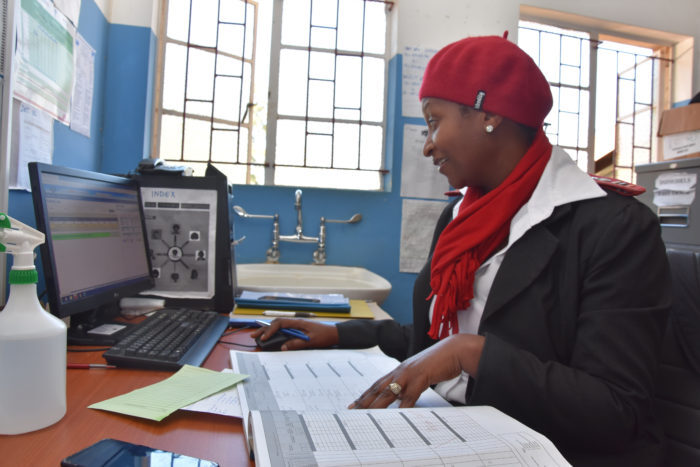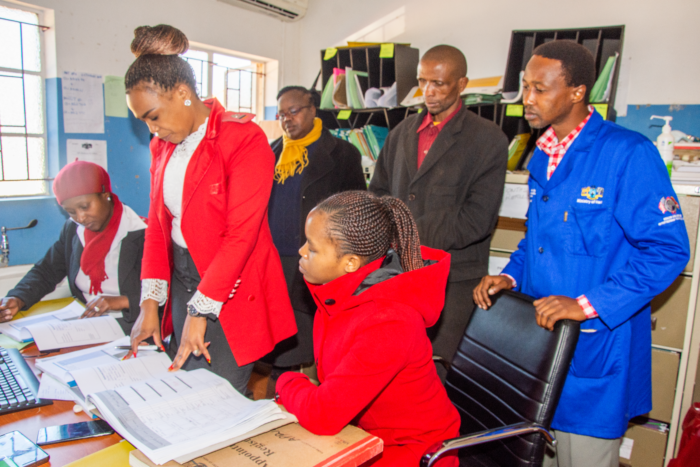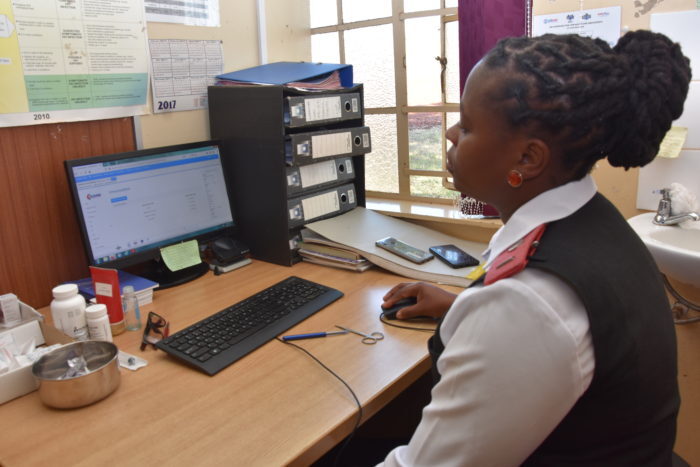 Health education is a lifelong pursuit, according to Felicity Maya, a senior nurse at Sigangeni Clinic in Eswatini. She says that health care workers at the clinic face challenges on the ground that they may not have been able to fully understand in the classroom.
Health education is a lifelong pursuit, according to Felicity Maya, a senior nurse at Sigangeni Clinic in Eswatini. She says that health care workers at the clinic face challenges on the ground that they may not have been able to fully understand in the classroom.
To help bolster knowledge and confidence among the staff when it comes to HIV services, the Elizabeth Glaser Pediatric AIDS Foundation (EGPAF) provides mentorship to health workers at different levels in the Hhohho and Shiselweni regions in Eswatini to improve quality of health services. The mentorship helps direct and support facility staff to effectively provide counselling for HIV testing, provide care and treatment, and conduct patient follow-up. The mentorship helps direct and support facility staff to effectively provide counselling for HIV testing, provide care and treatment, and conduct patient follow-up.
Without this support, prevention of mother-to-child HIV transmission would not be possible at Sigangeni, says Maya.
Health workers across 63 different facilities say that their work has been positively impacted by the EGPAF mentorship program. They have improved their job performance and addressed the challenges in reaching and retaining patients in care.
According to health care workers in supported sites, they are happy that the EGPAF mentorship team, which includes clinical, quality improvement, and data management teams, not only supervises them but also works in a “hands-on” manner with facility staff. They report that this makes it easier for them to learn and quickly adopt new methods in improving the quality of service.
The EGPAF mentorship team helps the clinic staff to quickly adopt new methods in improving the quality of service.

“We are very grateful to EGPAF for the mentorship support, as it makes our work easy in the facilities. It helps to keep us on toes as we know that when the mentors come, they will actually be checking for quality in our work,” says Maya.
Echoing Maya’s sentiments, Senzo Shongwe, a senior nurse at Ntfonjeni Clinic, said mentorship has helped them address all the challenges that they face as heath workers as they go about their work.
Some of the challenges, according to Shongwe, are a result of inadequate skills and knowledge of health workers, clients lost to follow-up, both the health worker and client attitudes, and inefficient use of resources, which inhibit the clinic’s ability toreach more people in need of health services.

“The EGPAF mentorship has helped improve the skills that we need as health workers as we do our work. Also important is that when we are in crisis, the EGPAF mentors are there to support us, which has resulted in us being able to provide higher quality health services to our clients,” he said.
Lobamba Clinic nurse Neliswa Zulu says that the mentorship has a positive effect on clinical quality and efficiency and on data quality.
“Whenever we find ourselves faced with a difficult task as we do our work, we know that our mentors will provide a solution. They are very supportive and make things happen for us in the facilities,” says Zulu.
The mentorship program is a PEPFAR- and USAID-funded intervention that helps the Foundation to support facilities to provide quality health services in Hhohho and Shiselweni regions of Eswatini.




